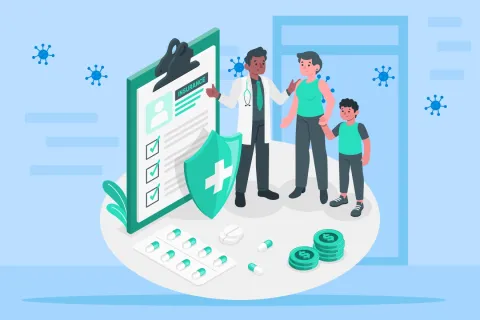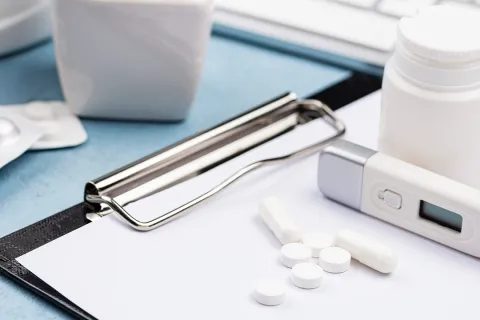
The Australian pharmaceutical market is projected to experience a Compound Annual Growth Rate (CAGR) of 3% by 2028. In this dynamic landscape, pharmacovigilance plays a critical role in ensuring the safety and well-being of patients.
The Therapeutic Goods Administration (TGA), Australia is the body responsible for detecting and assessing adverse events related to drug use in clinical practice in the country. Our blog will explore the significance of pharmacovigilance in Australia, specifically in the context of expedited drug approvals, and it will also shed light on the process for reporting adverse events.
The Significance of Pharmacovigilance in Expedited Drug Approvals
The TGA has been proactively exploring expedited approval pathways for certain drugs. Such pathways are meant to streamline the approval process and enable faster access to medicines that address unmet medical needs or benefit patients in a significant way. Expedited approvals are particularly relevant when traditional clinical trial data is limited or unavailable.
Moreover, the comprehensive collection and analysis of adverse events’ data for newly approved drugs enable the Regulatory authorities and healthcare providers to make informed decisions regarding their continued use. It helps achieve a balance between providing patients with timely access to potentially beneficial medicines and ensuring their safety in real-world clinical practice.
Sources of Australian Adverse Event Information
The TGA pharmacovigilance guidelines encourage healthcare professionals and the public to report any adverse event(s), irrespective of the drug’s age or the prescriber’s suspicion. The following are the two (02) key online sources of adverse event information in Australia:
- The Database of Adverse Event Notifications: This serves as a repository of reported adverse events in Australia, allowing healthcare professionals, researchers, and the public to access and review information. Moreover, the database helps monitor and track adverse events, contributing to the overall understanding of drug safety and pharmacovigilance.
- The Medicine Safety Update Publication: This is another primary source of information on adverse events in Australia. It periodically publishes any recent adverse events, potential risks, and safety concerns related to specific drugs or drug classes.
The Importance of Reporting All Adverse Events, Without Fail
The TGA relies on healthcare professionals, patients, and the public for reporting any adverse events that they may encounter, even if there is just a hint of suspicion on a drug causing an adverse effect.
When adverse events are reported to the TGA, they thoroughly investigate and determine the causality between the reported event and the drug in question. The investigative process is crucial for identifying potential safety concerns, evaluating the risks and benefits of the drug, and taking appropriate Regulatory actions, if necessary.
In turn, the TGA’s vigilance in investigating adverse events helps maintain a high standard of drug safety and contributes to overall public health.
Adverse Event Categories that are of Particular Importance to the TGA
The TGA places special importance on reporting certain specific types of adverse events, which provide valuable insights into the safety profiles of medicines and help identify their potential risks. The following are the four (04) main categories in this respect:
- Newly Listed or Registered Drugs: Adverse events that have occurred from recently approved drugs are closely monitored. The TGA seeks to gather as much information as possible about the safety and efficacy of such drugs in real-world settings.
- Medicine or Vaccine Interactions: Adverse events resulting from interactions between different medicines or vaccines are of particular concern. Therefore, understanding such interactions is crucial for conducting pharmacovigilance, ensuring patient safety, and optimizing treatment outcomes.
- Suspected Adverse Events that are Not Listed in the Product Information or Medical Resources: Adverse events not mentioned in the product information or medical resources may indicate previously unrecognized side effects or emerging safety issues from a drug. By reporting such suspected adverse events, healthcare professionals and the public contribute to expanding the knowledge base on drug safety. It also enables the TGA to take appropriate actions for mitigating potential risks.
- Adverse Events Leading to Severe Outcomes: Adverse events that result in extreme outcomes such as death, hospitalization, or congenital disabilities are of utmost importance to the TGA. Such events call for immediate attention and thorough investigation to help understand drug causality and potential risks.
The Process for Reporting Adverse Events
In the past, healthcare professionals and the public in Australia reported adverse events to the TGA by submitting a physical copy of a “blue card”. However, the process of aggregate pharmacovigilance reporting has undergone a significant transition, following which the TGA now utilizes an online reporting system for adverse event notifications.
This shift from physical to digital reporting has streamlined the process and made it more accessible and efficient.
Reporting Options for Healthcare Professionals and the Public
By empowering the public to report adverse events, the TGA aims at gathering a broad range of information and perspectives, thereby contributing to a well-rounded, comprehensive understanding of drug safety. The following are some of the ways in which healthcare professions and the public can report adverse events:
- The Australian Adverse Drug Reactions Reporting System (Online).
- The Consumer Portal for Public Reporting (Online).
- The Australian Adverse Drug Reactions Reporting System (Online).
- Telephone, Post, Fax, and Email Reporting (Physical + Online).
Final Thoughts
To sum up, pharmacovigilance is paramount to ensuring patient safety in the Australian pharmaceutical market. The TGA’s active involvement in detecting and assessing adverse events, coupled with their reliance on expedited reporting from healthcare professionals and the public, contributes to an all-inclusive understanding of drug safety.
Thorough investigations conducted by the TGA help maintain high standards and protect public health. Moreover, the efficient reporting process, including online platforms and a consumer portal, enhance drug safety monitoring.
If you are a drug manufacturer looking for end-to-end support with your pharmacovigilance activities in Australia, consult Freyr experts!









